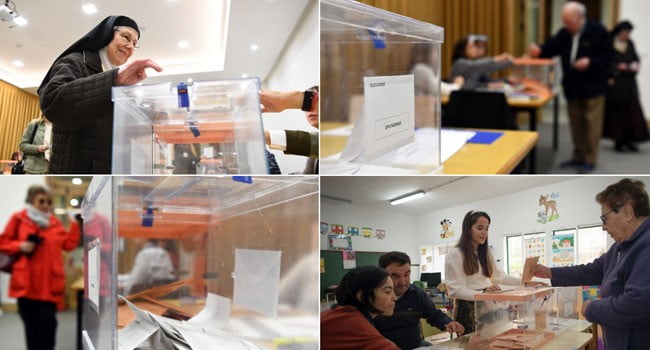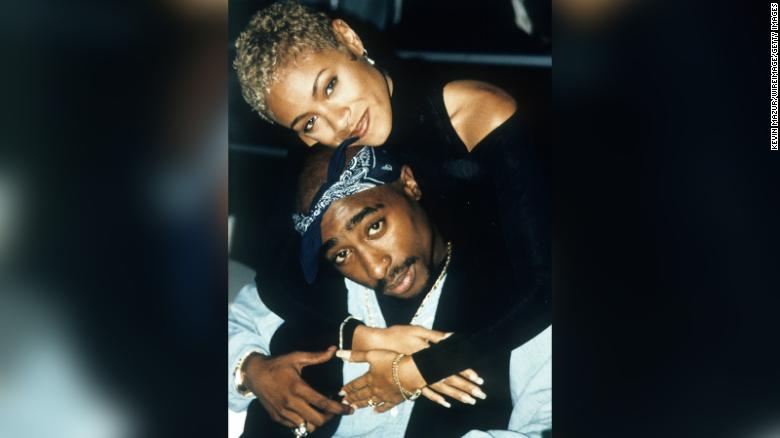Spain Votes In Repeat General Election Amid Catalonia Tensions
The repeat polls were called after Prime Minister Pedro Sanchez failed to secure support from other parties following an inconclusive election in April which saw his Socialist party win the most votes, but no working majority in parliament.
Opinion polls however suggest this new election will fail to break the deadlock. Neither the left nor the right look likely to win a ruling majority in Spain’s 350-seat parliament.
The Socialists are on track to finish top again, but with slightly fewer seats than the 123 they picked up in April, while the main opposition conservative Popular Party (PP) may strengthen its parliamentary presence.
But the most striking development could be the rise of the far-right Vox party, which might even jump to third-largest in parliament, according to polling.
Party leaders from across the political spectrum urged Spaniards to head to the polls.
Sanchez told reporters after voting in Madrid that “it is very important that we all participate to strengthen our democracy” and “have the needed stability to be able to form a government”.
The last election produced a near-record 76 percent turnout, which helped Sanchez who had mobilised left-leaning voters to oppose Vox but analysts warn the numbers will likely drop this time, as Spaniards suffer election fatigue.
Voting stations will close at 8:00 pm, with results expected a few hours later.
‘Put order’
The election comes as Spain finds itself increasingly polarised by the Catalan crisis, which has deepened in recent weeks.
Less than a month ago, the Supreme Court sentenced nine Catalan separatist leaders to lengthy jail terms over their role in a failed 2017 independence bid, sparking days of angry street protests in Barcelona and other Catalan cities that sometimes turned violent.
More than 600 people were injured in the protests, which saw demonstrators torching barricades and throwing stones and Molotov cocktails at police.
During a TV election debate PP leader Pablo Casado called for a “real government that will put order in Catalonia”.
But the toughest line against the Catalan separatists has come from Vox leader Santiago Abascal.
“Drastic solutions are needed,” he said during his final campaign rally on Friday night in Madrid.
He then repeated his pledge to end the Catalan crisis by suspending Catalonia’s regional autonomy, banning separatist parties and arresting its regional president, Quim Torra, who has vowed to continue the secession drive.
The crowd responded by chanting “Torra to the dungeon”.
At the rally, Ana Escobedo said she has voted for the PP in the past but was drawn to Vox because of its hard line on Catalonia as well as illegal immigration.
“I think we need to take a heavy hand,” she said.
‘Remain difficult ‘
Vox won 24 seats in parliament in the last election in April, in the first significant showing by a far-right faction since Spain’s return to democracy following the death of dictator Francisco Franco in 1975.
This time Vox could double that number, polls suggest.
In recent days, Sanchez has repeatedly raised the alarm about Vox’s “aggressive ultra-rightwing” policies, warning the party would drag the country back to the dark days of Franco’s dictatorship.
Spain has been caught in political paralysis since the election of December 2015 when far-left Podemos and business-friendly Ciudadanos entered parliament.
That put an end to decades of dominance of the two main parties, the PP and the Socialists, in the eurozone’s fourth-largest economy.
But there is a risk Sunday’s vote will only prolong the agony.
With no single party able to secure the required 176 seats for a majority, the Socialists are likely to opt for a minority government, ING analyst Steven Trypsteen said.
“Voting intentions appear to have changed since the April election. But these changes will not make it easier to form a government, so the political situation is likely to remain difficult after this weekend’s vote,” he added



